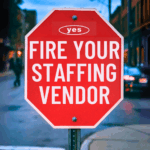Your Rights as an Employee in the State of Utah
Utah is an ‘at-will’ employment state. At-will employment is a term used in the U.S. labor law for contractual relationships in which an employer can dismiss an employee for any reason without having to establish “just cause” for termination, and without warning.
Sounds scary, doesn’t it?
So what are your rights as the employee?
 Some exceptions to this labor law that should be considered include:
Some exceptions to this labor law that should be considered include:
Public policy exceptions – an employer may not fire an employee if it would violate the state’s public policy doctrine or a state or federal statute
Implied contract exceptions – an employer may not fire an employee when an implied contract is formed between an employer and employee, even though no express, written instrument regarding the employment relationship exists
Covenant of good faith and fair dealing exceptions – court interpretations of this have varied, but violations are typically terminations made for malicious reasons
Statutory exceptions – Utah has a number of statutory protections for employees, such as the federal anti-discrimination statutes that prohibit firing or refusing to hire an employee because of race, color, religion, sex, national origin, age, and handicap status. An employer is also prohibited from retaliating against an employee for refusing to commit illegal acts and/or utilizing the Family or Medical Leave Act when qualified.
If you believe you were terminated for any reason that might violate any of the previously listed exceptions, it is highly recommended you seek guidance from an employment lawyer.
At-Will Termination
Outside of these exceptions, however, an employer is able to terminate an employee for any other reason including: poor performance, poor attitude, attendance issues, or even something as simple as a lack of available work. The employee’s actions are not always the reason they are let go from a job. Sometimes the employer has budgeting or scheduling issues that affect the workload or payroll capacity. Whatever the reason, as long as they aren’t violating state or federal laws or statutes, an employer in Utah has flexibility on whom, when and why to terminate.
 However, the employee also has the same flexibility. In an at-will employment state, employees may also quit without “just cause” or without warning if they so choose. Penalties for doing so would depend on any contracts or agreements previously made upon hire or during employment with the employer.
However, the employee also has the same flexibility. In an at-will employment state, employees may also quit without “just cause” or without warning if they so choose. Penalties for doing so would depend on any contracts or agreements previously made upon hire or during employment with the employer.
This labor law was created to help protect both parties from being required to continue poor, destructive, or unfavorable employment relationships. This allows such relationships to be corrected or terminated immediately instead of drawn out over the course of time, potentially creating an even more damaging experience for either party.
Don’t forget, however, that ending an employment relationship abruptly, from either side, can damage relationships and/or reputations and chances for future employment.
Utah Employment Options at YES
Here at Your Employment Solutions we do the very best we can to make really good, successful job placements in hopes of this never becoming an issue. However, sometimes the job-person fit isn’t quite right and either the employee or we have to take action and correct the issue. That could result in a new job placement, a lay-off, a termination, them quitting, etc. As we try to give as much notice as possible in any instance, we hope for the same respect from our employees when they decide to end their employment with us or at one of our clients. The more detailed an employee is in why they are quitting and the more notice that is given simply helps give us an honest and early opportunity to correct the issue and/or find a better job placement.
Help YES help you find the most suitable opportunity available by being open and honest with us! We’ll do the same in return.
If you have any questions regarding information posted in this article, please feel free to contact me anytime! (801) 298-9377
Alison Evans
Human Resources Manager
Your Employment Solutions
Facebook | Google+ | YouTube





